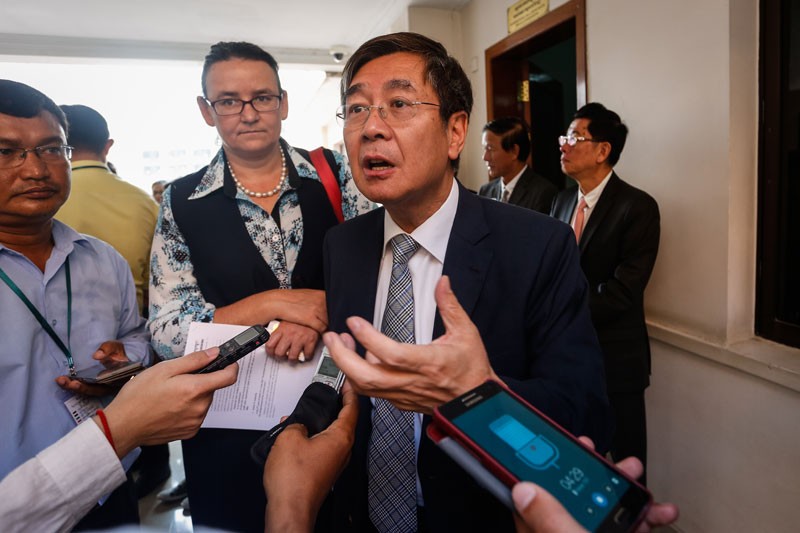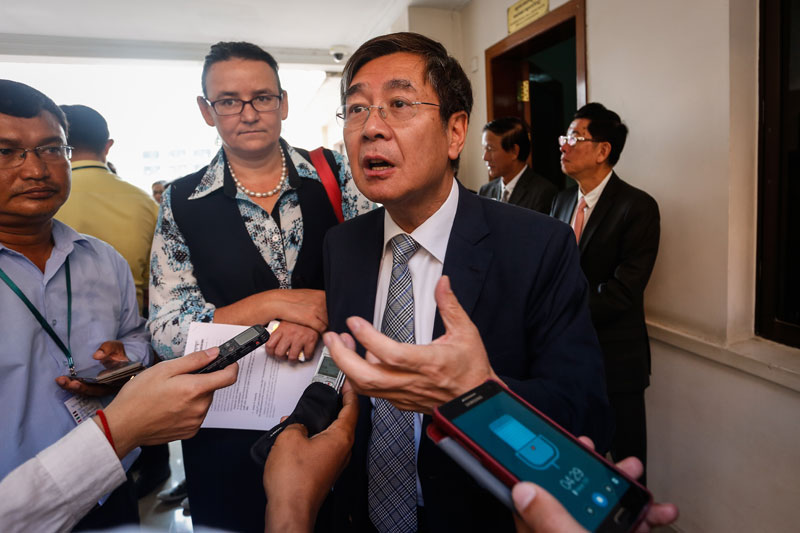Some of the country’s top business leaders laid out their main concerns with a controversial draft union law during a meeting with CPP lawmakers on Monday, including a stipulation that would let only 10 people form a union at a workplace.
The bill, which would set new rules for how unions are formed, run and dissolved, has taken fire from unions and employers alike, especially those in the country’s $5.8 billion garment industry. The International Labor Organization has also raised concerns with provisions that would violate Cambodia’s international treaty obligations.

During a closed-door meeting at the National Assembly in Phnom Penh requested by the Cambodian Federation of Employers and Business Associations (Camfeba), business leaders requested several changes to the draft law, first and foremost that the threshold for forming a local union be changed from 10 people to 20 percent of the employees at a given workplace.
The Garment Manufacturers Association in Cambodia (GMAC) has long complained that the plethora of unions in the sector—which number in the thousands—makes effective bargaining nigh impossible, and that keeping the threshold low would change nothing.
“A union cannot just say it is representative when it has only three or seven members and then represent 500 workers; it’s really crazy,” GMAC chairman Van Sou Ieng told reporters after the meeting. “If it’s 20 percent of the total [number of workers] in a factory, we agree.”
Camfeba also asked the lawmakers to change the draft to let the Labor Ministry—not just the courts—suspend trade unions for legal breaches, to raise the minimum age of a union leader from 18 years to 25, and require that leaders have at least a 9th-grade education, rather than just the ability to read and write in Khmer.
The federation also asked that union leaders prove they have clean criminal records with certificates from the Justice Ministry, and that unions seeking “most representative status”—a designation that grants them special bargaining rights—have support from at least 51 percent of employees at a workplace, not just 30 percent.
CPP lawmaker Sok Eysan said the lawmakers did not endorse any of the recommendations and would discuss them when they meet today with their CNRP counterparts on a bipartisan committee that was formed last month to consider changes to the law before it is put to a vote.
Yet no CNRP lawmakers were present at Monday’s meeting.
Camfeba vice president Sandra D’Amico said the federation’s request for a meeting was sent to the National Assembly and addressed to the entire legislative commission.
But CNRP lawmakers on the commission, including its vice chairman, said they never received an invitation.
Mr. Eysan and Leng Peng Long, the Assembly’s head administrator, claimed that Camfeba asked to meet with CPP lawmakers only.




